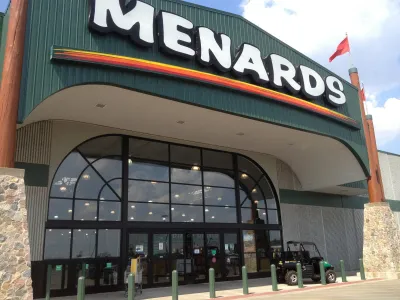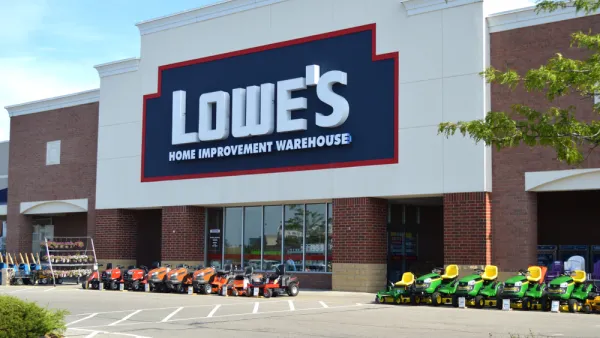"Dark store theory" argues that nearby depreciated properties should figure into property valuations. The resulting property tax cuts mean local municipalities end up taking a huge hit.

Laura Bliss reports on the efforts of big-box retailers across the country to lower property taxes by filing property assessment appeals using a contentious idea known as “dark store theory.” “With one property tax appeal after another, they are compelling small-town assessors and high-court judges to accept the novel argument that their bustling big boxes should be valued like vacant ‘dark’ stores—i.e., the near-worthless properties now peppering America’s shopping plazas.”
As a result of these appeals, municipalities are looking at potential property value losses ranging from millions to billions of dollars. The lost taxes and back taxes they would have to pay retailers — including Walmart, Target, Meijer, and Menards — would result in the financial burden being foisted onto residents through higher property taxes and cuts in local services.
Bliss says that many local governments have sought to avoid litigation costs by at least partially reducing assessed property values:
Yet dark store theory appeals have been incessant, and small towns feel outgunned. Retailers come back, year after year, insisting on paying less, even after they’ve been granted reductions. For them, every demand brings the opportunity for a lower valuation, and there’s no real financial downside, with outside tax lawyers working for contingency fees.
Municipalities also often provide subsidies and tax breaks to attract these businesses, with the expectation that rising property values will provide a return on their investments. However, a property tax decrease means a community will not benefit from any cost outlays and, in some cases, it could face debt.
Bliss says the Upper Midwest has been hit especially hard by this tactic, as the Great Recession left vacant retail buildings in many communities. "And dark store theory may be bigger than big boxes: As challenges spread geographically, city administrators fear the tactic will catch on among other property classes, with fast food outlets, banks, grocery stores, and office buildings deploying similar arguments in an effort to slash their tax obligations."
While government officials in some states are working on legislation to protect local communities, Bliss says documentation of the assessment process and the evidence used to come up with property values is a good short-term strategy for municipalities facing dark store theory challenges.
FULL STORY: After the Retail Apocalypse, Prepare for the Property Tax Meltdown

Analysis: Cybertruck Fatality Rate Far Exceeds That of Ford Pinto
The Tesla Cybertruck was recalled seven times last year.

National Parks Layoffs Will Cause Communities to Lose Billions
Thousands of essential park workers were laid off this week, just before the busy spring break season.

Retro-silient?: America’s First “Eco-burb,” The Woodlands Turns 50
A master-planned community north of Houston offers lessons on green infrastructure and resilient design, but falls short of its founder’s lofty affordability and walkability goals.

Test News Post 1
This is a summary

Analysis: Cybertruck Fatality Rate Far Exceeds That of Ford Pinto
The Tesla Cybertruck was recalled seven times last year.

Test News Headline 46
Test for the image on the front page.
Urban Design for Planners 1: Software Tools
This six-course series explores essential urban design concepts using open source software and equips planners with the tools they need to participate fully in the urban design process.
Planning for Universal Design
Learn the tools for implementing Universal Design in planning regulations.
EMC Planning Group, Inc.
Planetizen
Planetizen
Mpact (formerly Rail~Volution)
Great Falls Development Authority, Inc.
HUDs Office of Policy Development and Research
NYU Wagner Graduate School of Public Service




























